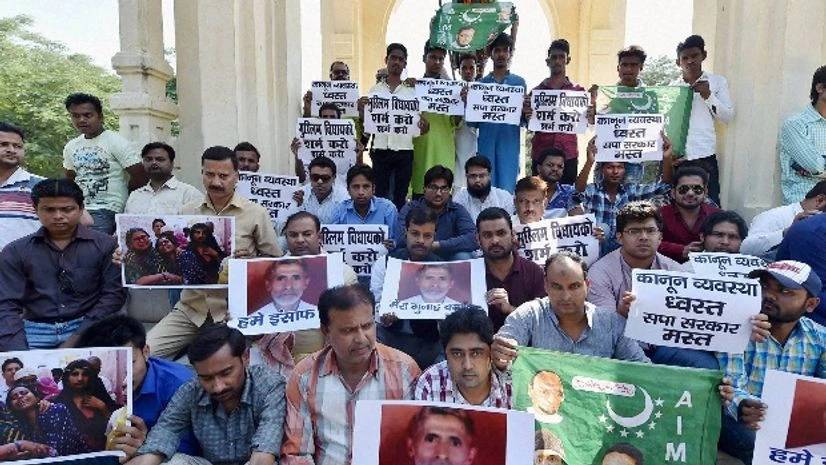Much hinges, or so claim defence lawyers fighting the case for those accused of murdering Mohammad Akhlaq, on whether the meat recovered from the house of the 52-year-old tailor was beef or not.
On Tuesday, the defence made public a report from Mathura’s University of Veterinary Science and Animal Husbandry that the meat was of “cow or its progeny” and not of goat. An earlier report by the Greater Noida veterinary officer had claimed it was goat meat. Akhlaq’s family has rejected the report as politically motivated but relatives of the accused are now likely to push the police to lodge a case of cow slaughter against Akhlaq’s family. Beef consumption is not banned in Uttar Pradesh but cow slaughter is a punishable offence in the state.
While it should be unacceptable that people be killed for consuming beef, the latest twist in Akhlaq's lynching in end-September 2015 is likely to revive the controversy with UP slated to elect a new assembly by May next year. There is, however, also lack of clarity on whether the meat tested in the Mathura lab was indeed recovered from Akhlaq's freezer or the sample was from the spot where he was lynched.
More From This Section
Now, the defence lawyers say the finding by the Mathura lab that the meat was beef would strengthen their case that the lynching was done by an emotionally charged mob. They argue that the lynching wasn’t a case of murder under section 302 of Indian Penal Code but of culpable homicide not amounting to murder under section 304. The punishment for murder is life imprisonment and it is a non-bailable offence. However, Section 304 is not only bailable but the punishment is significantly less stringent. The accused have been booked under Section 302.
Akhlaq’s family has rejected the report. Akhlaq’s brother Chand Mohammad told reporters that he believed the report was politically motivated. The family has insisted from the beginning that the meat was that of goat and not cow. The lawyer for Akhlaq’s family has told the media that whether the meat was of goat or beef didn't change the fact that Akhlaq was murdered.
Whatever the facts of the case, cow slaughter and consumption of beef are likely to become emotional issues in the state as it prepares to go for polls in 2017. Western Uttar Pradesh has remained communally sensitive ever since the Muzaffarnagar communal riots of August 2013. There have been over a dozen incidents of low key communal violence in western UP in 2014-15 as well.

)
